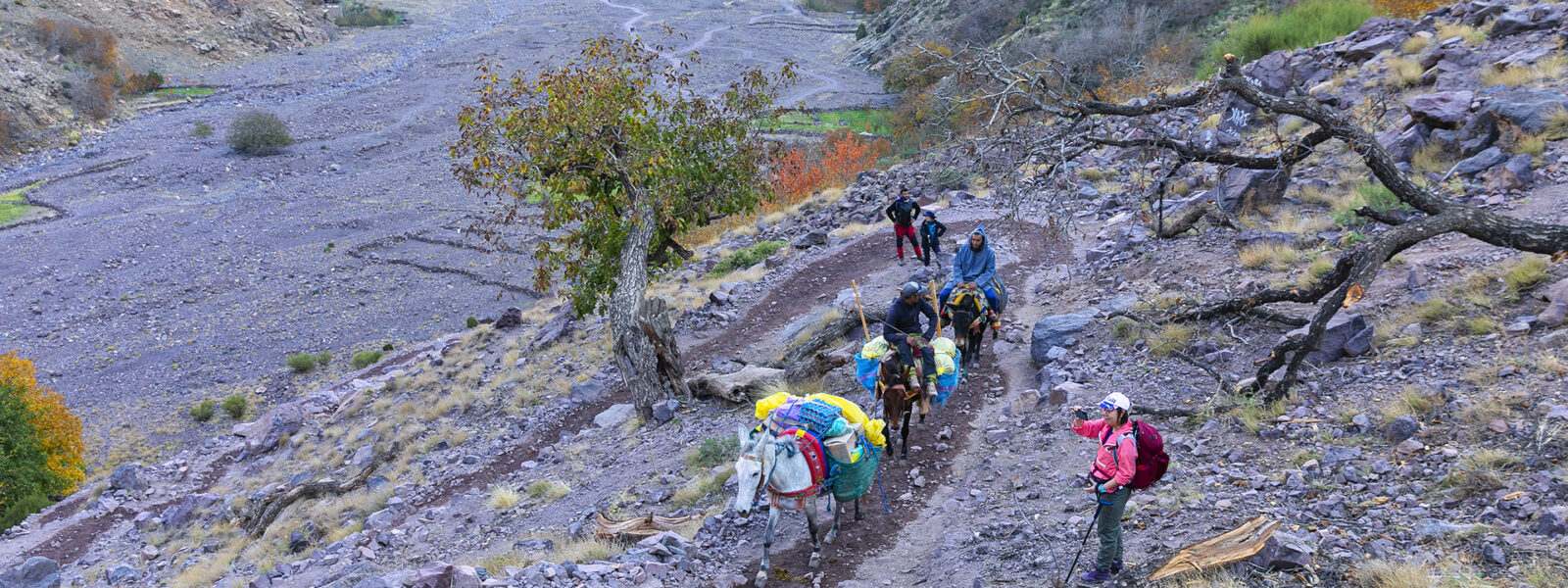Post climb refers to the period of time after an individual has completed a climb, such as after summiting Mount Toubkal. During this time, the body is recovering from the physical exertion and altitude exposure experienced during the climb.
If time allows after your descent and you have had dinner at Armund, upon being transferred back to your hotel, assuming you are staying in the same hotel as before your climb,. However, in busy instances, the staff may not have been able to retrieve your bag, and you may have to wait while a member of staff retrieves it from the lock room.
Security in Imlil
Imlil is a small village located in the High Atlas Mountains of Morocco, and it is known for being the starting point for treks to the Toubkal National Park. Like any tourist destination, it’s important to exercise caution and be aware of potential security risks. While Imlil is generally considered safe for tourists, there have been incidents of petty crime, such as pickpocketing and theft, so it’s essential to keep your belongings close and be aware of your surroundings at all times. Additionally, it’s recommended to avoid walking alone at night and to stay on designated paths and trails when hiking to reduce the risk of getting lost or encountering potential dangers. It’s also important to follow any advice or warnings provided by local authorities, such as park rangers or guides, and to respect the local customs and traditions.
Evening Meal Following Your Climb
After a climb, climbers may choose to invite their mountain guide, assistant guide(s), and possibly even their cook to dinner in the evening immediately following their climb. However, it’s important to note that this is not a customary practice and should not be expected. There are a few good restaurants in and around the High Atlas, and climbers can ask their guides for recommendations. Alternatively, climbers can simply have their evening meal at their hotel. If staying at one of the recommended hotels, such as Dar Imlil, climbers may opt for a bed and breakfast only booking to allow for flexibility in choosing where to eat on the night.
Onward Movements
After their climb, some climbers opt to take a desert tour with us. We plan to provide dedicated routes and options for this on our website. However, we advise that climbers should seek customised advice from their climb coordinator regarding itinerary options and costs. If climbers have made their own plans for their onward movements, we ask that they inform us so that we can assist with any necessary transfer arrangements to their next destination once their arrangements with us have ended.
Returning Home or Flying Onward from Toubkal
To avoid the extremely unwelcome scenario of missing your plane, please pay very close attention to the following guidelines:.
Post climb: Physiological changes after a climb:
- Increased heart rate and breathing: The heart and lungs work harder to pump oxygen-rich blood to the body and remove waste products.
- Muscle soreness: Strenuous activity during the climb can cause muscle damage and inflammation.
- Dehydration: Climbing can lead to fluid loss through sweating and respiration.
- Sleep disturbances: Altitude and physical exertion can disrupt sleep patterns.
- Appetite changes: Appetite may be decreased due to altitude and exertion.
Recommendations for post climb recovery:
- Rest: Allow the body time to recover by getting plenty of rest and avoiding strenuous activity.
- Hydrate: Drink plenty of fluids to rehydrate the body.
- Eat a healthy diet: Consume nutritious foods to replenish lost nutrients and energy.
- Monitor for altitude sickness: Be aware of the symptoms of altitude sickness and seek medical attention if necessary.
- Gradual descent: If possible, descend gradually to lower altitudes to allow the body to adjust to the increasing atmospheric pressure.
Additional tips:
- Massage: A massage can help to reduce muscle soreness and promote relaxation.
- Epsom salt bath: Soaking in an Epsom salt bath can help to soothe sore muscles and promote recovery.
- Compression socks: Wearing compression socks can help to improve circulation and reduce swelling.
- Stretching: Gentle stretching can help to improve flexibility and reduce muscle stiffness.
It is important to listen to your body and rest when needed. If you experience any severe symptoms, such as persistent headache, nausea, or vomiting, seek medical attention immediately.

